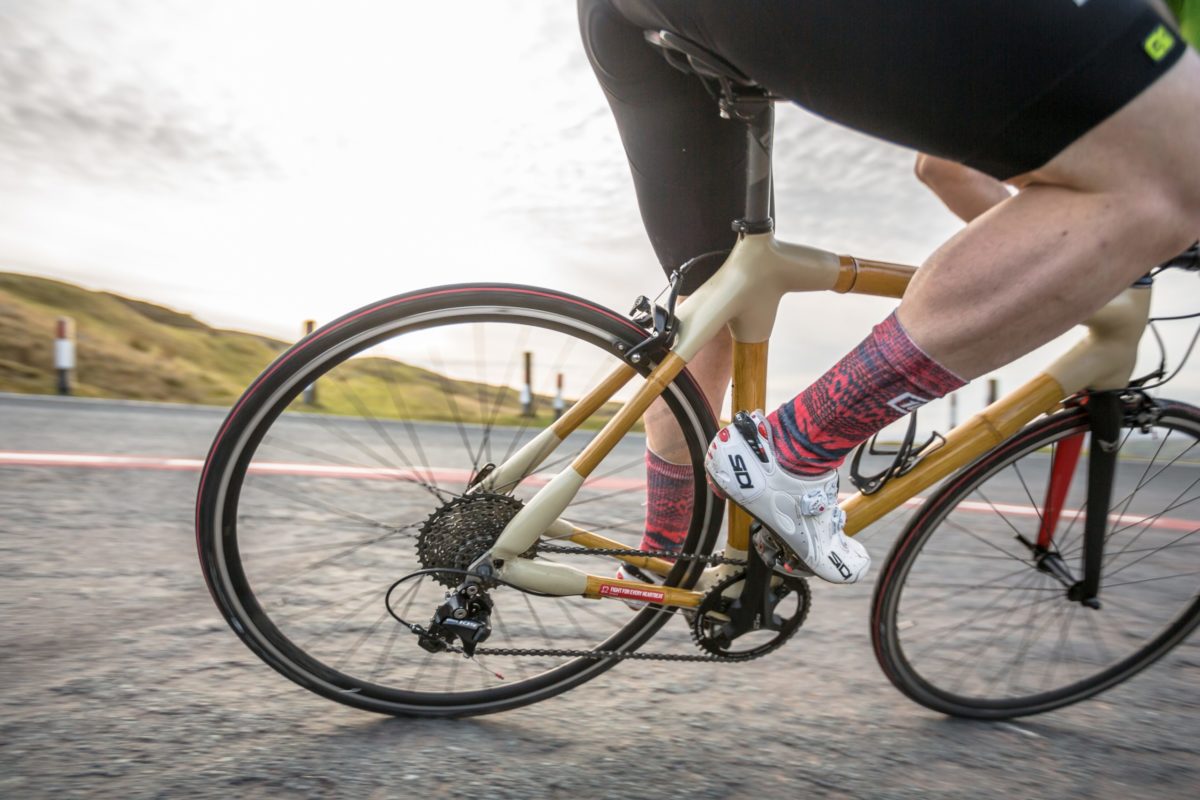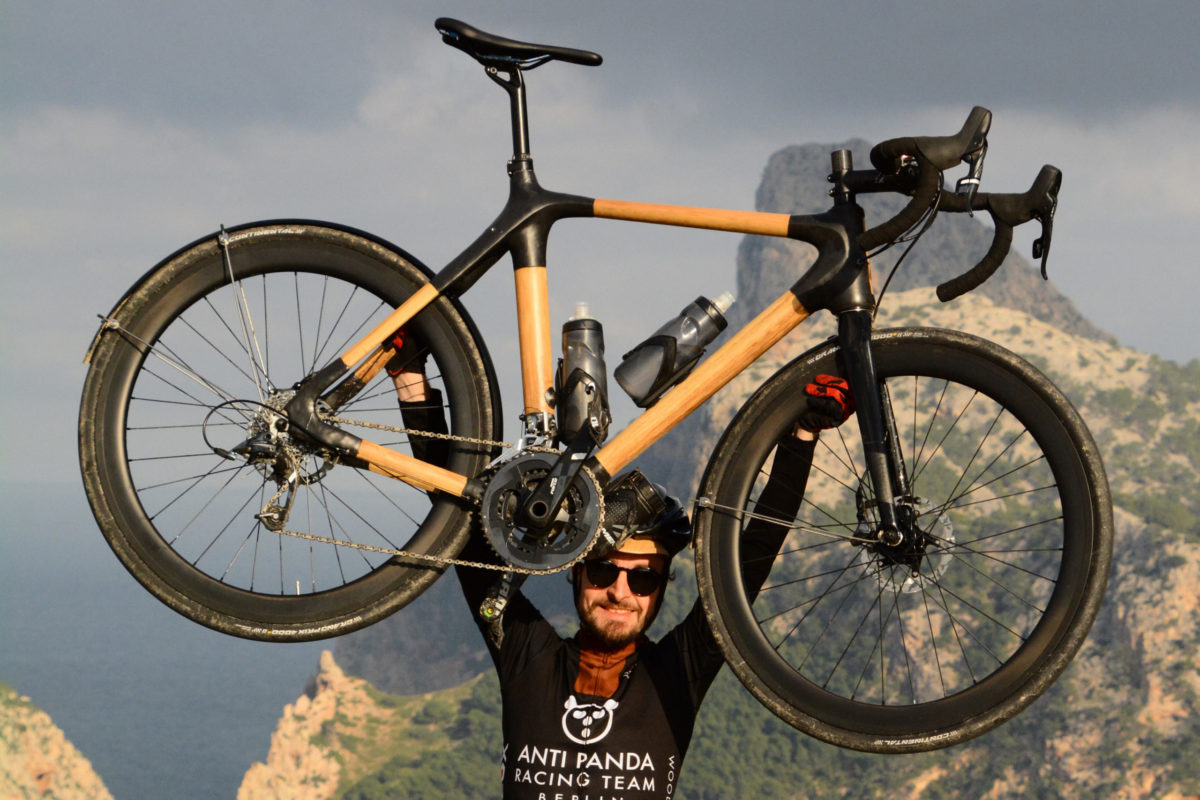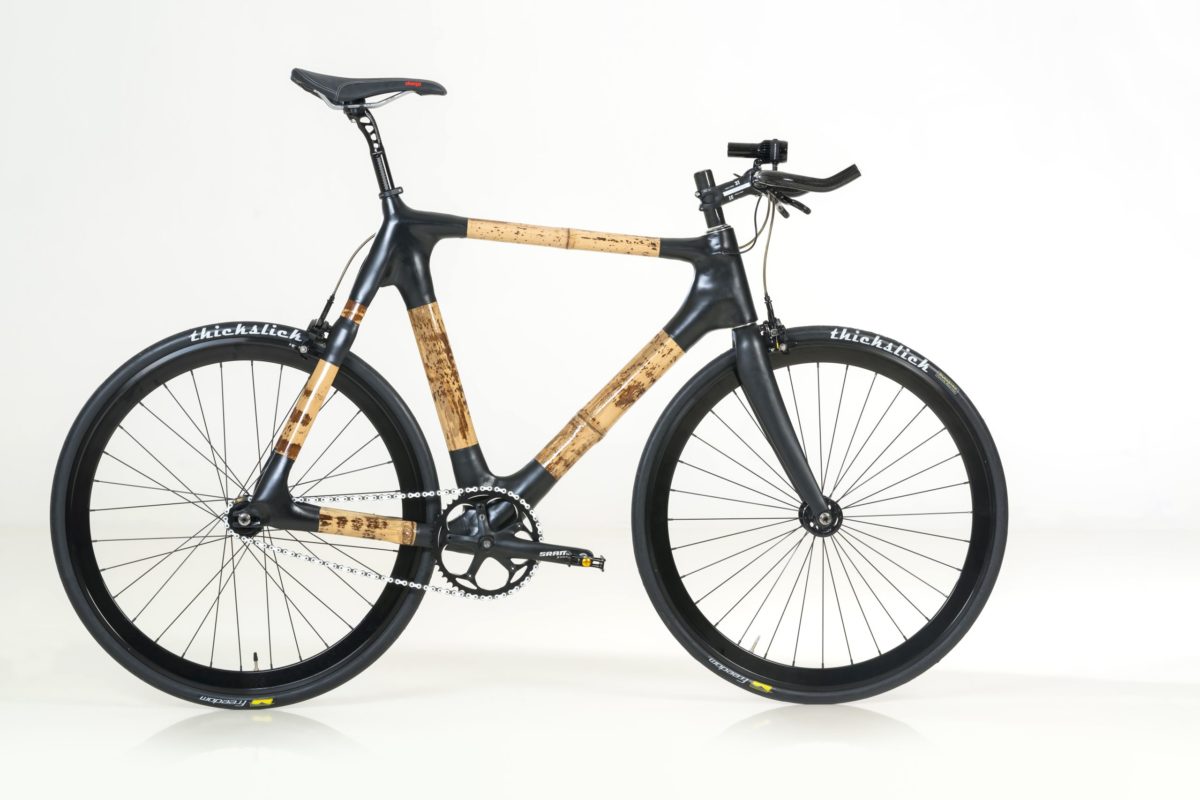Could bamboo be for you?

Bamboo bikes are niche but there is a genuine and rising interest in them – I noticed it in a recent race here in Berlin where a friend riding a bamboo bike was swamped by other racers afterwards. They wanted to know how it rode; they wanted to know how it was made and by whom; they wanted to know how much it cost.
My friend enthused. He’s top 10 on a super competitive and popular Berlin Strava crit segment on his bamboo steed and is part of the Anti-Panda bamboo fixie racing team that has performed well in local criteriums. Make no mistake folks: Bamboo is fast.
It might not be able to match carbon for weight performance when you need to go uphill or col, but on the flat, it possesses serious kudos in the speed stakes. And as Daniel Vogel-Essex told me when I visited his Ozon Cyclery operation in Berlin recently, there are quite a few good reasons to give the ‘boo a bash, not least its affordable customisation potential.
“Say you want a winter or training bike – we can make a frame that is an exact replica of your favourite racing bike,” he says. “Then there is the performance. People have said they have never ridden a bike that has the combination of torsional stiffness and vibration dampening and a good weight – it will never be lighter than carbon but it can be close and it is a lot stronger. And better for the environment of course.”
“Bamboo is after all a carbon-based material, but it is not as refined as a carbon frame. It is a non-optimised composite. It is ‘dirty’ in the sense that there are other compounds in bamboo, but these have advantages like vibration dampening and added strength. Steel and bamboo surprisingly have very similar properties.”

Do it yourself
Ozon has just attracted 56 backers for a 125% over-target Kickstarter campaign to sell bamboo DIY bike kits anyone can assemble at home using ‘the Ozon method’ developed and refined over many years and which includes YouTube tutorials.
For about €400-€500 you can build a customised bamboo frame complete with all attachments necessary to fit your chosen set up be it Shimano, Campagnolo and SRM or anything else.
“So in the kit you got the parts, you get the material including the labelled bamboo lengths and flax sheets for joining, you get the templates and you get the information, the online tutorials,” says Vogel-Essex. “And that can be specific to a particular groupset – like this bike is for Shimano Ultegra with a 52 chainring at the front for example.”
In the UK, Bamboo Bicycle Club (BBC) offers a similar DIY service for around £350 with various options depending on the level of customisation. Founder James Marr says BBC has been selling DIY bamboo bike kits for about six years with gravel, single speed and road bikes the most popular.
Both talk up the education side of things – how the kits match a DIY ethos that drills into green ethics, self-sufficiency and, yes, lower cost. Anyone who builds their own frame learns about bamboo; different types of bamboo; why it is so strong; how best to join it for maximum strength, safety, aero and aesthetic concerns.
Both offer workshops to the public and offer them to schools and learning institutions too and are not interested in selling pre-made bikes to the public.
“It’s kind of against our philosophy,” Marr says. “We believe people should learn new skills and learn how to do things and be self-sufficient and that when you make something and then ride it you’ve got a completely different experience to buying something off the rack.”
“Building bikes as a hobby is just so addictive that it’s really hard to get away from,” says Vogel-Essex, whose business remains a collective of bike and design enthusiasts in Berlin.

Don’t do it yourself
That is not to say you can’t buy a pre-built bamboo bike. The biggest in Europe My-Boo, based in southern Germany and selling through its home country but also the UK, France, Belgium, Switzerland, Austria and the Netherlands and other European nations.
Co-founder Maximillian Schay tells The Draft his 8-year-old business is (bam)booming, employing 30 people and has grown around 50% in the past 12 months to the current annual level of about 1,000 road bikes, mountain bikes, gravel bikes, city bikes and e-bikes.
Each bike is handmade by a team of about 45 bamboo bike builders in Ghana with each frame taking about 80 hours of work before being shipped back to Germany where components and wheels are fitted before being offered on its own retail site and shipped to about 170 bike shops across the continent. My-Boo says its operation supports Ghanaian communities.
“Most of our customers like the fact the bikes are handmade in a country like Ghana and they can give people their opportunity with scholarships and supporting schools,” says Schay. “If we wanted to do it more cheaply we would go to a country like China but we can include a country like Ghana in the supply chain and that can benefit everyone.”
Aside from its eco-credentials, Schay reckons bamboo’s ride performance is often the differentiator for its customers. “It’s just a very comfortable ride, it’s durable – people want that. Price is not a big point of difference in this market.”
My-Boo offers three road bikes priced between £2500-£3500.
Find out more about these bambooists here:
https://www.bamboobicycleclub.org/en/
https://www.my-boo.com/








